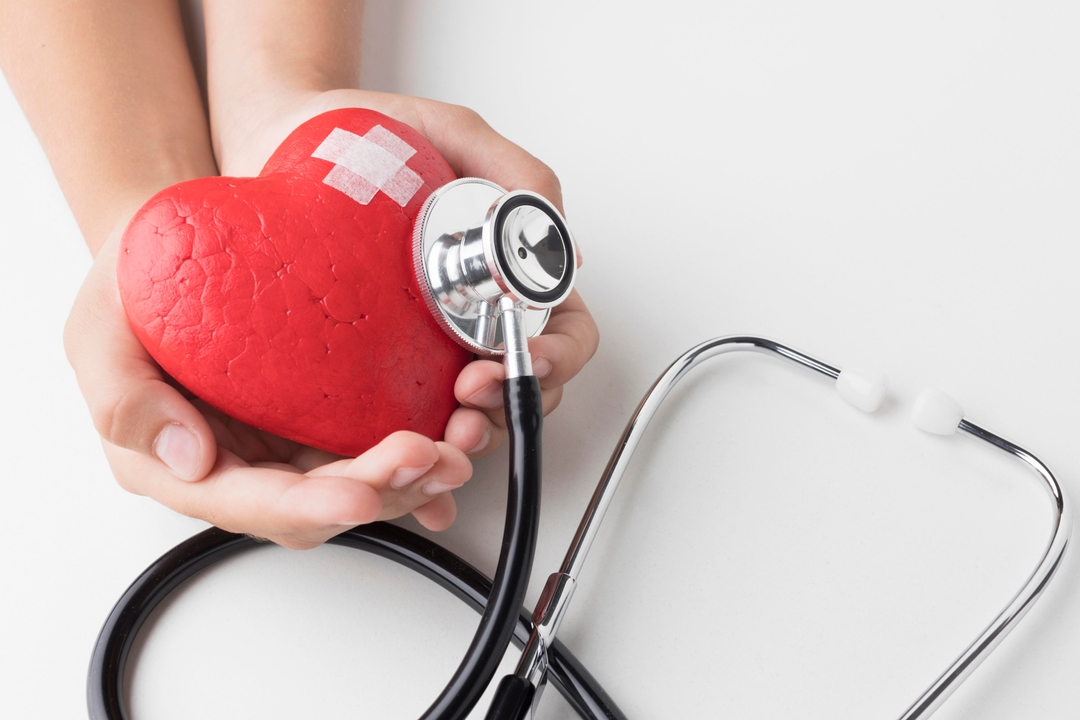
Pregnancy Month-by-Month Guide
By revati raman
Reviewed by : Jalaz Jain
June 20, 2023
A pregnant woman goes through various phases of emotion right from the day she learns about her pregnancy.
It is an overwhelming period, but when prepared from before, the journey can become calm and relaxing.
Therefore, we have created a month-by-month pregnancy guide so you can know what to expect from your pregnancy and track your baby’s growth.
Check out this video to understand pregnancy timeline: https://www.youtube.com/watch?v=_XJ1DUN6UUw
Month 1
| Nutrient | Food Sources | Function | Recommended Daily Amount |
| Folate | Eggs, broccoli, asparagus, beans, oranges, peanuts, spinach | Prevents brain and spine birth defects | 600 micrograms |
| Protein | Cottage cheese, fish, chicken, lentils, milk, peanut butter, eggs, Greek yoghurt | Promotes growth | 75 grams |
The first month of pregnancy starts from the first day of the last menstrual cycle. At this stage, symptoms are usually unnoticeable.
The first indication is often a missed period or light spotting. Common signs of pregnancy in the first month include nausea, mood swings, fatigue, cramping, and belly pain.
Baby Development
During the first month of pregnancy, a tiny fertilised egg implants into the uterine lining, beginning a new life.
This momentous event triggers a flurry of activity, including the growth of the amniotic sac, which serves as a cushion to protect the developing embryo.
The placenta also starts to form, providing vital nutrients and support to the growing baby. At the same time, the umbilical cord also starts to grow.
As the month progresses, crucial organs, including the mouth, lower jaw, throat, and eyes, begin to take shape. Blood cells also start to develop, and circulation begins, carrying essential nutrients and oxygen to the developing embryo.
By the end of the first month, the baby is about 2mm in size and weighs less than 1 gram.
Nutrition Needs
During pregnancy, it’s crucial to ensure that you’re getting enough of these essential nutrients:
A healthy and balanced diet, including various fruits, vegetables, whole grains, and lean proteins, can help meet these requirements.
In some cases, supplements may also be recommended by a healthcare provider to ensure proper nutrient intake.
A more detailed table in provided at the end of the article.
Medical Tests / Scans
Medical tests and scans in the first month of pregnancy are crucial for monitoring the health of the mother and the developing fetus.
One of the most common tests is a pregnancy test , which detects the human chorionic gonadotropin (hCG) hormone.
After conception, the placenta produces this hormone in the mother’s blood and urine.
There are two main types of pregnancy tests: urine and blood tests. Urine tests can be done at a clinic or home using a test kit. When used properly, these tests are 97-99% accurate, but there is still a possibility of a false negative.
On the other hand, blood tests are more accurate and can detect pregnancy earlier than urine tests. There are two types of blood tests: qualitative hCG blood test and quantitative hCG blood test .
The qualitative test checks for the production of hCG, while the quantitative test measures the level of hCG in the blood.
Ultrasound scans can also be done in the first month of pregnancy, as early as three days after a missed period, to detect the fetus and check for potential complications. The earliest detection of pregnancy through ultrasound is around 17 days after ovulation.
Regular medical tests and scans throughout pregnancy can ensure the best possible outcome for the mother and baby.
What to Take Care of?
Month 2
The second month of pregnancy is overwhelming as cells transform into an embryo and major organs develop. Expect symptoms such as morning sickness, food aversion, indigestion, constipation, and sensitive and sore breasts.
It’s a crucial time for foetal development, so maintaining a healthy lifestyle is essential.
Baby Development
At this stage, the embryo grows rapidly. It measures 0.5 to 1 inch and weighs approximately 9.45 grams. At the end of this month, the heart forms, and the heartbeat is around 140 beats per minute.
The embryo’s webbed fingers, ears, eyes, eyelids, arms, and legs start to develop, giving it a more defined shape. During this month, the embryo’s brain, sensory organs, digestive tract, and liver begin to take shape.
The cartilage in the body is also gradually being replaced by bone. Moreover, the embryo’s movement begins during this stage, but it is still undetectable by the mother.
It’s interesting to note that during this period, the sex organs are the same, and the embryo is neither female nor male.
Nutrition Needs
In the second month, focusing on a healthy and balanced diet that provides essential nutrients to support the baby’s development is crucial.
A balanced diet with various nutrient-rich foods is essential during the third month of pregnancy. The diet guidelines remain almost the same and are provided at end of this article in separate section.
In case of needed, your doctor will guide on additional foods / supplements etc. to be taken.
In addition to a healthy diet, pregnancy-safe exercises like squats, kneeling push-ups, and cardio can help maintain fitness and prepare the body for labour and delivery. Consult with a healthcare provider before starting any exercise routine during pregnancy.
Note
Medical Tests / Scans
One of the primary tests during this period is the dating scan , which is usually performed between 6 to 14 weeks of pregnancy. It helps estimate the due date and determine the baby’s gestational age.
In addition to the dating scan, there may be other blood tests to examine the overall health of the mother and the developing baby. These tests can provide vital information about the presence of any genetic conditions or abnormalities that may need further investigation or monitoring.
The precautions are applicable throughout the pregnancy period. Some are mentioned below:
Month 3
Now the women enter the final stage of the first trimester. Vomiting and nausea may intensify, though some women may not experience these symptoms.
Additionally, there may be an increase in vaginal discharge. Despite these changes, the size of the belly typically remains the same at this stage.
Baby Development
At this stage, the embryo transforms into a foetus, marking the end of the embryonic period. At this stage, the placenta firmly attaches to the uterine wall, while the umbilical cord connects the foetus’s abdomen to the placenta, providing vital nutrients and oxygen.
The foetus’s facial features become well-defined and prominent, and its fingers and toes are no longer webbed, fully developing with distinct nails. The skin, fingernails, and toenails also grow while bone hardening begins, and teeth begin to develop.
The bone marrow also starts producing white blood cells, the kidneys begin forming urine, and the liver produces bile. Early sweat glands also appear, and the eyelids fuse to protect the eyes.
During this stage, the reproductive organs begin forming, but the sex of the foetus remains undetectable by ultrasound. Moreover, it develops reflexes and can spontaneously move, such as closing its fists and mouth.
The foetus grows to about 2.5 to 3 inches in length and weighs around 28 grams during the third month of pregnancy.
Nutrition Needs
A balanced diet with various nutrient-rich foods is essential during the third month of pregnancy. The diet guidelines remain almost the same and are provided at end of this article in separate section.
In case of needed, your doctor will guide on additional foods / supplements etc. to be taken.
Medical Tests / Scans
Blood tests and ultrasound scans are available between weeks 11 to 14 to test for Down Syndrome and Trisomy 18. These tests evaluate the risk of these chromosomal abnormalities and give expectant parents peace of mind.
In addition, other blood tests may be conducted to examine the overall health of the mother and foetus.
Note
What to Take Care of?
The precautions are applicable throughout the pregnancy period. Some are mentioned below:
Check out this video to monitor first trimester development: https://www.youtube.com/watch?v=rJSH6Iy_R-M
Month 4
The fourth month of pregnancy marks the beginning of the second trimester. While weight gain is expected, the belly may not show it yet.
Vomiting and nausea are likely to decrease or disappear altogether. At this stage, many women experience food cravings as their hormones fluctuate.
Baby Development
With the start of the fourth month, hair, nails, eyelids, and eyelashes are well formed, and their lips and ears are functional, allowing them to hear you talk. You can even hear the baby’s heartbeat through a Doppler at this stage.
The nervous system is also developing, laying the foundation for the baby’s cognitive and motor skills. The reproductive organs are fully developed, with the prostate gland developing in male foetuses and eggs forming in the ovaries of female foetuses.
The baby can stretch, yawn, suck their thumb, and make faces. Although their eyes are closed, they can still react to light and even turn away from it.
You may feel the baby kick or flutter as they grow, measuring around 5 inches long and weighing approximately 110 grams.
Overall, the fourth month of pregnancy is exciting as your baby’s development progresses rapidly, paving the way for future milestones.
Nutrition Needs
A balanced diet with various nutrient-rich foods is essential during the third month of pregnancy. The diet guidelines remain almost the same and are provided at end of this article in separate section.
In case of needed, your doctor will guide on additional foods / supplements etc. to be taken.
Medical Tests / Scans
During the fourth month of pregnancy, medical tests and scans play an important role in monitoring the health of both the mother and the growing foetus. A Doppler ultrasound can check the baby’s heartbeat, which should be 120-160 beats per second.
Blood tests and blood pressure analyses may also be performed to monitor the mother’s overall health and detect any potential issues early on.
What to Take Care of?
During the fourth month of pregnancy, taking care of oneself is paramount to ensure a healthy pregnancy and delivery. Here are some things to keep in mind:
Month 5
During the fifth month of pregnancy, women often experience a calming phase as the uncomfortable symptoms of the earlier months recede. This is when the baby bump begins to appear, making it clear to everyone that a little one is on the way.
Baby Development
Head and shoulder hair start growing by the fifth month, and the baby’s back and shoulder are covered in a thin layer of hair called lanugo. The baby is also protected by a thick vernix caseosa that covers the skin and protects it from the amniotic fluid.
The sense organs, including the brain’s sense organ area, are also developing rapidly. For female foetuses, the uterus is now starting to develop.
Muscles are developing, and the baby is getting stronger. At this stage, women can often feel the baby’s movements as they kick and punch. The baby is now around 9 to 10 inches long and weighs approximately 450 grams.
Nutrition Needs
A balanced diet with various nutrient-rich foods is essential during the third month of pregnancy. The diet guidelines remain almost the same and are provided at end of this article in separate section.
In case of needed, your doctor will guide on additional foods / supplements etc. to be taken.
Some foods should be avoided during pregnancy:
Maintaining a healthy diet and avoiding foods that can harm the developing baby during pregnancy is essential.
Medical Tests / Scans
Several medical tests and scans are typically conducted to ensure the health of the mother and the developing baby. The Quadruple test is an optional screening that measures four hormone levels to detect abnormalities.
An ultrasound is typically done to examine the baby’s development and check for abnormalities. Routine blood pressure analysis and blood tests are also conducted.
What to Take Care of?
Here are some things to keep in mind during this time:
Following these guidelines can help ensure a healthy pregnancy and reduce the risk of complications.
Month 6
By the sixth month of pregnancy, you’re in the final stage of the second trimester. The good news is that the uncomfortable symptoms you may have experienced earlier in your pregnancy will likely recede.
You’ll also start to notice your baby bump becoming more prominent as your little one grows and develops.
Baby Development
During the sixth month of pregnancy, your baby continues to develop rapidly. The bone marrow produces blood cells, and the taste buds start forming.
Your baby also has unique fingerprints, and the liver is now fully formed, although it can’t work yet outside the uterus. The eyes move beneath closed eyelids, and frequent limb movements can be observed during ultrasounds.
The baby can hear your heartbeat and respond to sounds around them. You may even feel the baby hiccup or make a jerking motion.
By this stage, your little one is around 12 inches long and weighs around 900 grams.
Nutrition Needs
A balanced diet with various nutrient-rich foods is essential during the third month of pregnancy. The diet guidelines remain almost the same and are provided at end of this article in separate section.
In case of needed, your doctor will guide on additional foods / supplements etc. to be taken.
Medical Tests / Scans
You may be scheduled for the triple screen test , typically performed between 15 to 22 weeks. This test checks for three substances in your blood – AFP, hCG, and estriol – to help identify the risk of certain birth defects.
In addition, other medical tests may be recommended per your condition.
What to Take Care of?
Taking care of your health is essential during the sixth month of pregnancy. Here are some things to keep in mind:
Check out this video to monitor second trimester development: https://www.youtube.com/watch?v=7M-Ol98OLXc
Month 7
Congratulations, you have entered the third trimester! At seven months pregnant, your baby bump becomes more noticeable as it grows.
Stretch marks become noticeable on your belly as your skin stretches to accommodate your growing baby. Enjoy this exciting time as you prepare to welcome your little one.
Baby Development
Significant changes occur at this time. Adipose tissue deposition increases, enabling the regulation of body temperature and the provision of energy.
The nervous system matures, and existing organs develop further to support their functions. Additionally, melanin production increases and the lungs produce surfactant to prepare for breathing.
Your baby’s hearing is fully developed, and they can open their eyes and blink. In preparation for birth, they may turn their head down.
At this stage, the baby typically measures around 14 to 15 inches and weighs between 900 grams to 1.8 kg.
Nutrition Needs
A balanced diet with various nutrient-rich foods is essential during the third month of pregnancy. The diet guidelines remain almost the same and are provided at end of this article in separate section.
In case of needed, your doctor will guide on additional foods / supplements etc. to be taken.
Medical Tests / Scans
During the seventh month of pregnancy, medical tests and scans may be recommended based on the individual’s condition. Regular check-ups ensure the mother and baby are healthy and progressing well.
Consult with a healthcare provider for guidance on the appropriate tests and scans required during this stage of pregnancy.
During the seventh month of pregnancy, taking special care of yourself and your growing baby is important.
Month 8
Coming to the eighth month of pregnancy. The expectant mother may feel heavily pregnant with a full bump due to the growing baby inside.
As the uterus expands, it may also put pressure on the bladder, causing increased urination, and the growing baby may compress the lungs, leading to shortness of breath.
Baby Development
The brain continues to develop, and newborn-style brain waves can be observed at this stage. The kidneys have matured, and the testes have descended into the scrotum in male babies.
The lanugo, a fine hair covering the baby’s skin, starts to peel off.
However, the baby’s lungs are still immature, and the baby cannot yet breathe independently. Nonetheless, they can control their body heat and may kick more as they grow.
At this stage, the baby is around 17 to 18 inches long and weighs around 2.2 kg, which is close to its birth weight. As the due date approaches, the baby’s development will continue progressing, and they will be ready to enter the world.
Nutrition Needs
A balanced diet with various nutrient-rich foods is essential during the third month of pregnancy. The diet guidelines remain almost the same and are provided at end of this article in separate section.
In case of needed, your doctor will guide on additional foods / supplements etc. to be taken.
Medical Tests / Scans
Regular check-ups with the healthcare provider are recommended throughout the pregnancy. These check-ups may include monitoring the baby’s growth and checking the mother’s blood pressure and urine for signs of complications.
The frequency of these check-ups may vary depending on the individual’s health condition and any previous pregnancy complications.
What to Take Care of?
Following these guidelines will help ensure a healthy pregnancy and delivery.
Month 9
The ninth month marks the last stage of pregnancy, and it’s normal to experience back pain, exhaustion, and frequent urination as the baby grows.
At this point, you may feel anxious and ready for birth. Your body is preparing for labour, and taking care of yourself and resting as much as possible during this time is essential.
Baby Development
In the ninth month of pregnancy, the eyes can now constrict and dilate, allowing them to better adjust to changes in light. The fine hair covering the baby’s body, called lanugo, is almost gone as the baby prepares to enter the world.
The lungs mature, and the baby’s reflexes become more coordinated. As the baby grows, it may change position and drop down into the pelvis, with its head facing down in preparation for birth.
At this stage, the baby is around 17 to 18 inches long and weighs approximately 2.5 to 3 kg.
Nutrition Needs
A balanced diet with various nutrient-rich foods is essential during the third month of pregnancy. The diet guidelines remain almost the same and are provided at end of this article in separate section.
In case of needed, your doctor will guide on additional foods / supplements etc. to be taken.
Medical Tests / Scans
The check-ups may include blood pressure analysis at this stage to monitor mother’s health. Keeping up with these appointments is important to ensure a safe and healthy delivery.
What to Take Care of?
Check out this video to monitor third trimester development: https://www.youtube.com/watch?v=I24Kb1oAaM8
Nutrition During Pregnancy
| Nutrient | Food Sources |
| Folic Acid (B9) | Leafy green vegetables, citrus fruits, legumes, fortified cereals |
| Iron | Red meat, poultry, fish, legumes, tofu, fortified cereals, leafy greens |
| Calcium | Dairy products, leafy green vegetables, fortified plant-based milk, nuts, seeds |
| Vitamin D | Fatty fish, egg yolks, fortified milk, and orange juice, sunlight exposure |
| Protein | Lean meats, poultry, fish, legumes, eggs, dairy, nuts, seeds |
| Omega-3 Fatty Acids | Fatty fish, flaxseeds, chia seeds, walnuts, fortified eggs |
| Vitamin B12 | Animal products, fortified plant-based milk, nutritional yeast |
This following table covers a wide range of nutrients that are important during pregnancy.
Keep in mind that every individual’s needs may vary, and it’s always best to consult with a doctor for personalized advice.
Conclusion
In conclusion, understanding the changes that occur during pregnancy month by month is crucial for expectant mothers.
By keeping track of foetal development and maternal changes, women can better prepare for the arrival of their babies. It helps them to make informed decisions about their health.
Regular prenatal care and communication with healthcare providers can also ensure a safe and healthy pregnancy for both the mother and baby. With proper care and attention, the journey to motherhood can be a rewarding and fulfilling experience.
Loading...










